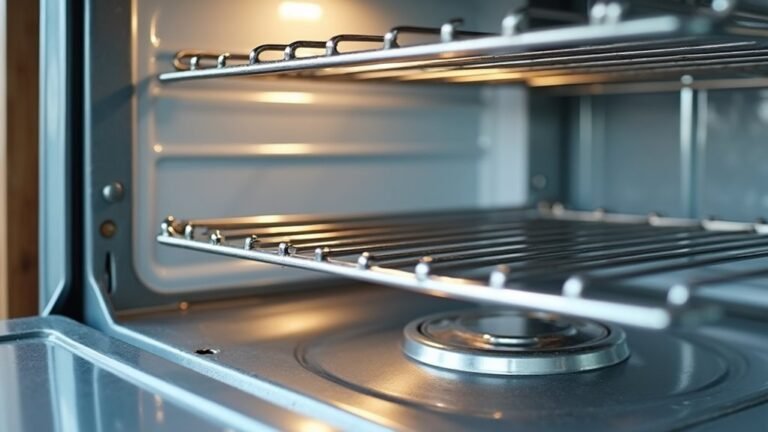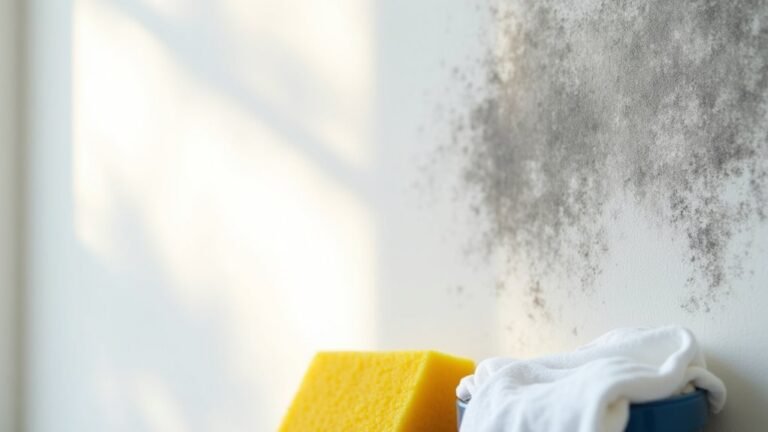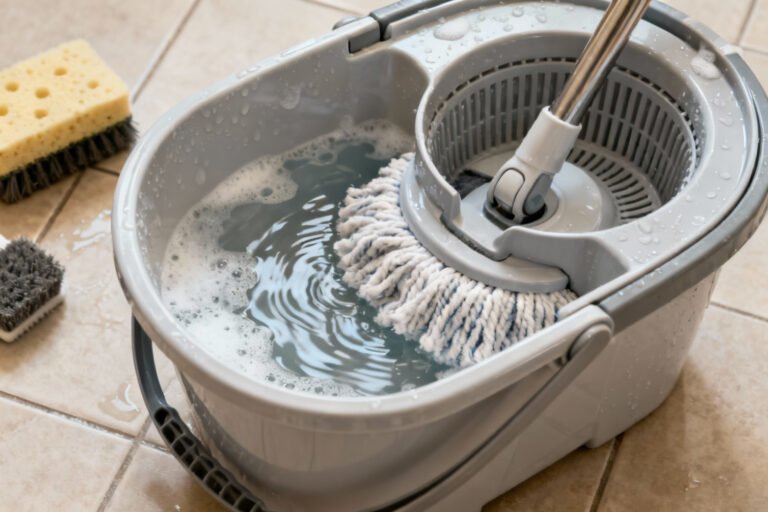We all have wooden spoons in our kitchen, but most of us don't take good care of them. These handy tools can last many years if we treat them right, but too often they end up stained, dry, or covered in mold. Let's learn how to keep wooden spoons clean and ready for cooking.
Some of the links in this article may be affiliate links. If you make a purchase through these links, we may earn a small commission at no extra cost to you. Thank you.
According to Mariette Mifflin, writer for The Spruce, "Wooden utensils are naturally more sanitary than plastic ones, as their porous surface traps bacteria, which then dies as the wood dries out."
These basic tools might look simple, but they need special care. When we ignore them, they can become a place where germs grow, and nobody wants that in their food. The good news is that keeping wooden spoons clean isn't hard – it just takes a little know-how and the right steps.
Kitchen Workhorses Need Care

While wooden spoons mightn't be the flashiest tools in our kitchen drawers, they're true workhorses that deserve special attention.
These essential kitchen utensils need regular care to maintain their lifespan. We need to clean them with hot water and unscented dish soap after each use, as wooden spoons can absorb odors.
Regular maintenance, including mineral oil treatments, keeps them from drying out and extends their usefulness.
##
Let's explore what we should and shouldn't do when cleaning our wooden spoons to keep them in prime condition.
We'll start with proper cleaning techniques and best practices, including daily care routines and monthly deep cleaning methods.
Things to Do When Cleaning Wooden Spoons
Wooden spoons require regular maintenance and proper cleaning techniques to guarantee their longevity and safe use in the kitchen.
These essential kitchen tools can last for years when properly cared for, but they need specific attention to prevent bacterial growth, odor absorption, and damage that can occur from improper washing methods.
- Hand wash immediately – Use hot water and unscented dish soap after each use to prevent food and bacteria from settling into the wood.
- Scrub thoroughly – Remove all visible food particles with a sturdy sponge, paying special attention to stained areas.
- Deep clean periodically – Soak in boiling water with baking soda for 20 minutes to eliminate stubborn residue.
- Dry completely – Pat with a clean towel and air dry to prevent moisture damage and warping.
- Oil regularly – Apply food-grade mineral oil every few weeks to maintain wood condition.
- Avoid dishwasher – Never clean wooden spoons in the dishwasher as high heat and moisture can cause damage.
- Store properly – Keep in a dry, well-ventilated area to prevent moisture accumulation.
- Inspect frequently – Check for cracks, splinters, or signs of wear that might require replacement.
Things to Avoid When Cleaning Wooden Spoons
Wooden spoons require special care during cleaning to maintain their durability and prevent damage that could compromise their functionality and longevity.
While these kitchen tools are sturdy and reliable, certain cleaning practices can greatly shorten their lifespan and potentially make them unsafe for food preparation.
- Dishwasher cleaning – High temperatures and harsh detergents cause wood to warp and crack
- Extended water soaking – Prolonged moisture exposure leads to swelling and splitting of wood fibers
- Chemical-based cleaners – Harsh chemicals can seep into wood grain and contaminate future food preparation
- Abrasive scrubbers – Steel wool or rough sponges damage the wood's surface and create scratches where bacteria can grow
- Frequent boiling – Excessive heat exposure weakens wood structure and can cause permanent deformation
- Hot pan contact – Leaving wooden spoons resting on hot pots can scorch and damage the wood
- Air drying in dish rack – Vertical storage while wet leads to water pooling and potential mold growth
- Storing while damp – Putting away moist spoons can trap humidity and encourage bacterial growth
Steps
Keeping your wooden spoons clean and well-maintained is essential for both food safety and extending their lifespan. Proper cleaning involves a combination of regular maintenance after each use and periodic deep cleaning to prevent buildup and bacterial growth.
By following the right cleaning methods, you can guarantee your wooden utensils remain sanitary and in excellent condition for years to come.
Step 1: Rinse the wooden spoon under hot water immediately after use
Step 2: Apply unscented dish soap and scrub thoroughly with a sturdy sponge
Step 3: Focus on removing visible food residues and stains
Step 4: Rinse completely with hot water until all soap is removed
Step 5: Pat dry with a clean kitchen towel
Step 6: Stand the spoon upright or lay flat to air dry completely
Step 7: Once monthly, deep clean by soaking in boiling water with baking soda for 20 minutes
Step 8: After deep cleaning, dry thoroughly and condition with food-grade mineral oil
Step 9: Apply oil by rubbing it into the wood with a clean cloth
Step 10: Allow the oil to absorb completely before using the spoon again
Final Thoughts
While maintaining wooden spoons might seem like a lot of work, we've found that following these cleaning and care guidelines will ultimately save you time and money in the long run.
##

Proper care of wooden spoons isn't just about cleanliness – it's about preserving these essential kitchen tools for years of reliable use.
By following a routine of immediate washing, avoiding prolonged water exposure, monthly deep cleaning, and regular oiling, you can maintain your wooden spoons in prime condition. These simple maintenance steps will prevent common issues like bacteria growth, odor absorption, and structural damage.
Take a moment to examine your current wooden spoons and implement these care practices starting today. Your efforts will be rewarded with durable, safe, and beautiful utensils that enhance your cooking experience.
Remember that replacing damaged spoons promptly is just as important as maintaining them properly. With mindful care, your wooden spoons can remain treasured kitchen companions for many meals to come.






